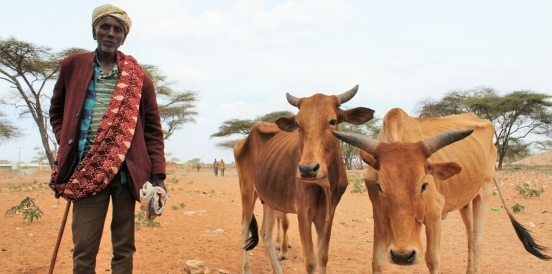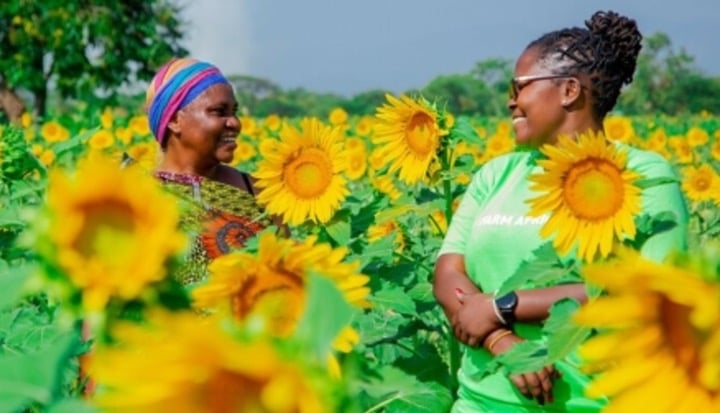The second of the UN’s Sustainable Development Goals – SDG2: Zero Hunger – aims to create a world free of hunger by 2030. However, according to the UN, a combination of factors including the pandemic, conflict, climate change, and deepening inequalities, mean that hunger and food insecurity have been rising since 2015, and the world is back at hunger levels not seen since 2005.
It is against this backdrop that I was recently invited, along with Rory Stewart of Give Directly; Dr Jyotsna Puri, of IFAD; Ruchi Tripathi of VSO; Dr Rachael McDonnell of IWMI and CGIAR to give evidence to the House of Commons’ International Development Committee on the UK Government’s work on achieving SDG2.
Farm Africa focuses on supporting smallholder farmers across eastern Africa to increase their agricultural production, sustainably manage the environment and increase their access to markets.
My discussions with the International Development Committee, chaired by Sarah Champion MP, were a great opportunity to share real-life examples of how these interventions build rural communities’ resilience to climate change, and bolster food security and nutrition.
The full evidence session can be watched in the video above.
Some of the key points I shared were as follows:
Climate extremes
Extreme weather events directly impact agricultural production. Drought can cause the failure of harvests, and the loss of livestock when pastures dry up. Floods can lead to the loss of farmland, with some livestock being washed away.

Poor agricultural productivity resulting from climate extremes in turns impacts farmers’ access to markets, as they become unable to meet market demand for the food they produce.
A lack of agricultural extension services means that information on climate-smart agricultural practices does not reach many farmers, hindering their ability to adapt to climate extremes.
Poor infrastructure
Poor infrastructure such as roads, a lack of markets and inadequate storage facilities, means farmers are unable to safely store, transport or sell their produce, meaning there is little incentive to increase production even if they could.
Climate-smart agriculture
The change in weather patterns does not allow for farmers to stick with traditional ways because that does not work any more. In the face of climate change, they are not able to realise good yields from their agricultural production, so they have to pick new things.
Farm Africa supports communities across eastern Africa to build their resilience to climate change by adopting a climate-smart agriculture approach, such as regenerative agricultural practices.
These practices allow farmers to continue producing more in the face of climate change. They are able to farm in situations where there is less water availability by using practices such as mulching.
They are also able to get the yields they need by using products such as drought-tolerant seeds.
When we look at pastoralist communities, we promote livestock breeds that are more drought-tolerant or survive better in a drought situation, such as camels and goats.
Village-based advisors
For farmers, what is their goal? They want to increase their yields and incomes. If there is anything that can address these two issues, they will welcome it.
However, they are also risk averse. They will not jump on a new approach, methodology or seeds, without seeing how it works, what the impact is, and what the cost is.
Farm Africa has piloted an extension service delivered by village-based advisers where community members, who are more knowledgeable than others in particular areas, are supported and trained to provide extension services to their fellow community members.
The village-based advisors trial and demonstrate new approaches on model farms, and the farmers can compare their own yields with the yields from the model farms. Farmers are then able to take on these new approaches and methodologies.
A systems approach
We go beyond agricultural production and structure programmes that address other challenges farmers are facing in the agrifood system: financial access, market access and access to information.
The other consideration in the food system is biodiversity: looking at the environment in which communities are living in. To build the food security and climate resilience of communities, we also need to support programmes around sustainable land and forest management.
Women and young people
Especially in African communities, women and young people are disadvantaged because of social and cultural norms. They may not have access to the resources they need to ensure that they are in a productive agribusiness production system.
We need to look at how we can empower the women and young people to actively engage in agribusinesses that are sustainable.
Achieving SDG2: Zero Hunger by 2030 is a critical global objective that requires urgent action and collaboration across sectors. Despite the progress made in previous years, food insecurity and hunger are still on the rise, emphasising the need for intensified efforts and innovative solutions.
Going forward, continued investment in climate-smart agriculture, community-led extension services, and holistic programmes that integrate environmental sustainability and social empowerment will be essential in making progress towards SDG2 and creating a world free of hunger by 2030.
Collaboration between governments, NGOs, communities, and the private sector will be key to driving positive change and ensuring food security for all.
This article was previously published on the Farm Africa website.










